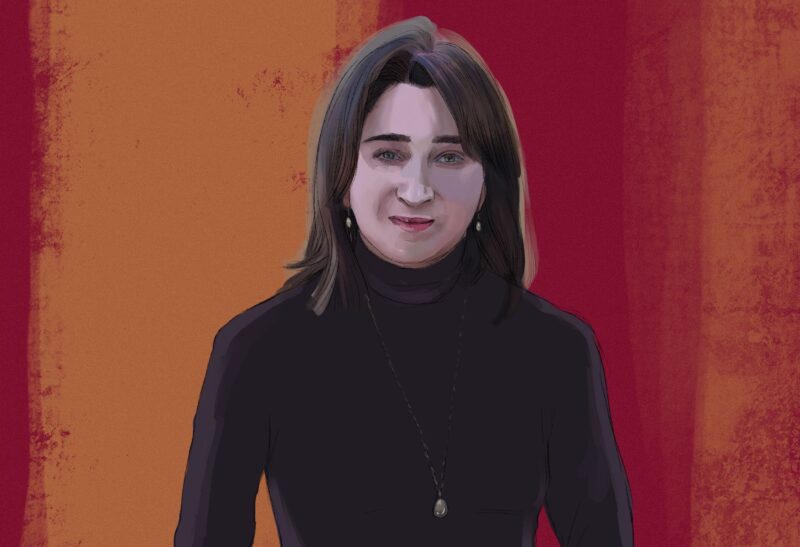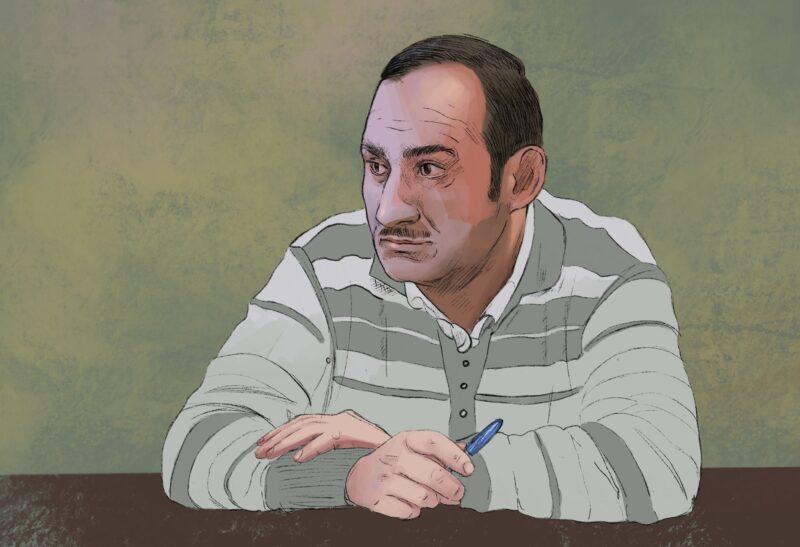

Last summer’s Gezi Park demonstrations and recent “power struggle” which is entitled as “The December 17 Process” with semi religious / semi pragmatic Gülen Movement constitutes the most influential acts against the Justice and Development Party (AKP) since it came to power in November 2002.
The Gezi Park demonstrations — or one may say, the “uprising” — were not only to save a park in Istanbul’s main square which was planned to be replaced by a shopping mall but aimed at Erdogan, who is planning to run for the presidency this August and has been trying to change the constitution to create a more powerful presidential system, in which he does not cooperate with any non-AKP members or civil society representatives as he does not in any decision making processes including Gezi Park case. As an example; when unaffiliated individuals started to gather at the Park
to prevent bulldozers turning it into a mall, Erdogan said of the future of the Park as:
“The protesters can do whatever they want. We’ve made our decision, and we will do as we have decided”…
Nonetheless, in that period, his attitude towards personal choices like alcohol consumption or abortion and his faults on foreign policy area mainly on Syria were also followed with a high concern and finally The Park was the straw that broke the camel’s back where millions want to be heard instead of being ignored. The nationwide protests were not to change the Government but a peaceful call directly to Erdogan for respect – respect for choices, respect for differences, respect for life style and respect of civic participation.
However “The December 17 Process” is different which, I believe, is a postponed appearing of power struggle…
“Gülen Movement” or “Hizmet (Service) Movement” – as its follower’s new choice to be defined in recent years – which leaded by Fethullah Gülen, a former imam who resides in USA as a self-exiled, is active in business, media and education with a global network more than 1,000 schools in 140 countries. They also manage a network of “dershane”s within the country which is preparatory courses for university and high school entrance exams where students between the ages of 13-18 are educated.
But those are not the only network of the Movement. Due to the “draining” attempts on public sector for around three decades, today, there are a large number of high level Gülen followers in the Judiciary and the Police Mission who were grown up in the Movement’s schools and “dershane”s.
Nevertheless Erdogan, who formerly belongs to “National Outlook” which is another religious group but historically rival of “Gülen Movement”, had a pragmatic cooperation with them since Gülen followers were already organized in the public sector and their pragmatic collaboration was very clear during the general elections in 2007 and constitutional referendum in 2010. In this period, the Government supported Gulenist companies, schools, and charities’ access to opportunities at home and abroad. And through the Ergenekon and Sledgehammer trials, the two worked side by side to bring the army to heel.
However those two actors’ hidden infighting on “sharing the Power” (They had different mentalities in a number of issues like Kurdish question, National Intelligence Agency’s activities or relations with Israel and Iran) recently occurred after Erdogan’s decision on closing hundreds of “dershane”s belonging to Gulen followers.
Thereafter, via high level Gülen followers in the Judiciary and the Police, on Dec. 17, a drastic corruption investigation started against Erdogan’s government. Police arrested a large number of people with ties to the government, including several powerful businessmen, the sons of three ministers, and the chief executive of a state bank — who had stashed $4.5 million in shoeboxes inside his home. On Dec. 25, the four cabinet members implicated in the scandal forced to resign, with one of them urging Erdogan to follow suit. The same day, news leaked of a separate graft probe targeting more officials and businessmen, including Erdogan’s own son and immeditealy Erdogan reciprocated it by dismissal of hundreds of Gulenist high level Judiciary and Police Mission members.
Nowadays we receive different tape recordings of Erdogan and his family while sometimes he’s urging a news channel to change the news subtitles, or his daughter is telling her concerns of an illegal built summer villa. It seems that the ongoing battle will continue –most probably by an increasing mood-, when the local elections on 30th March and presidential one on August which will be the first time a president will be elected by public vote, are taken into consideration.
On one side, while Erdogan is keen on to dominate every corner (Judiciary, bureaucracy, media, business life) after 11 years ruling, Gülen Movement is also keen not to lose what it had during the last three decades sometimes with the help of illegal activities like taping people which it used against high level military officials as well. At that time Erdogan was silent for those illegal activities but now it turned to himself, his son, his daughter, “his” ministers, “his” mayors and businessmen whom he has close relations…
It is clear that Erdogan was not expecting such a resistance and struggle in a time where he believed his hold on supreme power was secure. However it is too early to say for sure how recent events will impact the elections, since the competence of the opposition parties is in serious doubt.
However Turkey must not lose time with those private interest struggles but have battle in different areas like basic living standards, the educational system, justice, separation of powers, moral and religious freedom, equality in representation, transparency, respect for differences, freedom of speech, and accountability or free civil society which have worsened for many in Turkey. According to the UN’s latest Human Development Index, Turkey is in 92
nd
place between Tonga and Belize and has the second worst record in Europe, ahead only of Moldova.
According to Freedom House’s annual report Turkey is listed as “partly free.” Her civil liberties rating declined from 3 to 4 this year due to the pretrial detention of thousands of individuals – including journalists, union leaders, students and military officers in campaigns that many believe to be politically motivated. Turkey is listed in the same group on political rights as such countries as Bangladesh, Botswana, Tanzania or Liberia. She shares the same civil liberties ranking as Zambia, Uganda, Niger or Kenya.
Another report,
The Press Freedom Index 2013
published by
Reporters Without Borders
highlights the state of press freedom in Turkey. Turkey occupies 154th place – down from 99th in 2002 among 179 countries. Turkey continued her fall in the table this year, dropping six places (following one of ten of last year) due to the dramatic escalation in the judicial harassment of journalists. According to the 2012 and 2013 reports, the unprecedented extension of the range of arrests, massive phone taps and the contempt shown for the confidentiality of journalists’ sources have helped to reintroduce a climate of intimidation in the media and “make Turkey today the world’s biggest prison for journalists…”
With all these complicated issues and three major elections in 16 months, it deserves to be asked: Turkey, Quo Vadis?
Emre Özdemir is an independent policy analyst based in Istanbul, Turkey.



